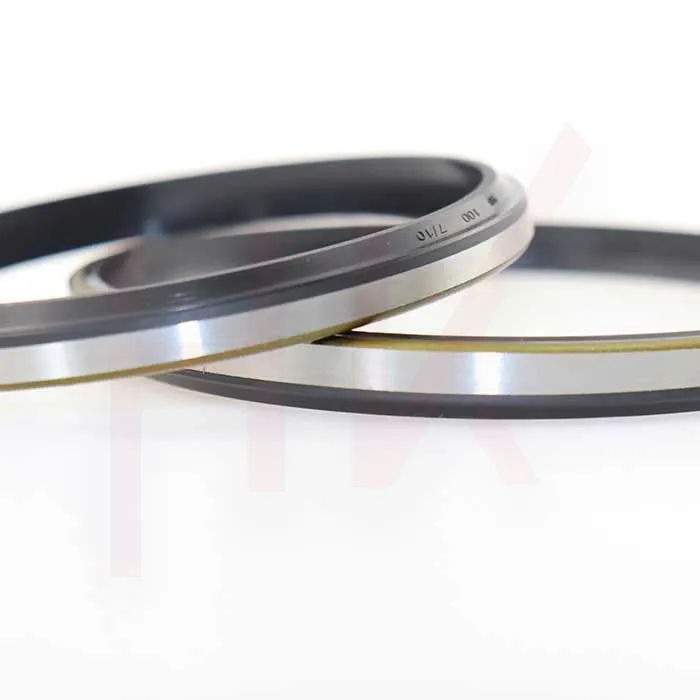nov . 30, 2024 06:12 Back to list
oil seals
Understanding Oil Seals Essential Components for Machinery Performance
Oil seals, also known as grease seals, are critical components in many mechanical systems. These seals are designed to prevent the leakage of lubricants while also keeping contaminants and dirt out of machinery. Their effective operation is crucial for the longevity and efficiency of various equipment, ranging from industrial machines to automotive engines. In this article, we will explore the importance of oil seals, their types, applications, and some tips for their maintenance and selection.
What Are Oil Seals?
An oil seal is typically made from rubber or polymer materials, although metal and composite seals are also available for specialized applications. The primary function of an oil seal is to contain the lubricating fluid within a component while preventing external substances, such as dirt, moisture, and dust, from entering. This contamination-free environment is essential for smooth operation, minimizing wear, and reducing the risk of failure in machinery.
Types of Oil Seals
Oil seals come in several different types, each designed for specific applications and environments
1. Radial Shaft Seals These are the most common type of oil seals. They are typically installed in rotating shafts and are designed to retain lubricants while preventing the ingress of dirt.
2. Face Seals Often used in applications where axial movement of components occurs (like pumps), face seals use a flat sealing surface to prevent leakage.
3. Mechanical Seals These are used in applications that involve high-pressure environments, such as pumps and compressors. Mechanical seals consist of multiple components working synergistically to prevent leaks.
4. V-Seals A type of oil seal with a 'V' shaped lip, these seals provide effective sealing at relatively low speeds and are ideal for applications where dust and dirt are primary concerns.
5. Rotary Seals These are specifically designed for applications involving rotating shafts and can endure high speeds while maintaining a seal against lubricant losses and contamination.
Applications of Oil Seals
oil seals

Oil seals are found in numerous applications across various industries. In the automotive sector, they are vital components in engines, transmissions, and differential systems, where they help maintain oil pressure and prevent oil leaks. In industrial machinery, oil seals are used in gearboxes, pumps, and hydraulic systems to ensure reliability and performance. Additionally, oil seals are utilized in household appliances, aerospace systems, and even medical devices, showcasing their versatility and importance.
Selection Criteria
When selecting an oil seal for a particular application, several factors should be considered
1. Material Compatibility Different materials are suitable for different fluids. For instance, certain seals may degrade in the presence of specific oils or chemicals, making material choice critical.
2. Temperature and Pressure Ratings The operating conditions, including temperature ranges and pressure levels, play a significant role in determining the right seal type.
3. Shaft Size and Configuration The dimensions and design of the shaft will dictate the size and type of seal required to ensure a proper fit.
4. Environmental Conditions The presence of dirt, moisture, or chemicals in the environment can affect seal performance, necessitating the need for seals designed to withstand such contaminants.
5. Speed The rotational speed of the shaft must be considered, as different seals have varying capabilities when it comes to speed and dynamic operation.
Maintenance and Replacement
To ensure the longevity of oil seals, regular maintenance is vital. Operators should periodically inspect seals for signs of wear, such as cracks, hardness, or deformation. Any signs of oil leakage should be addressed immediately, as they indicate seal failure. If a seal needs replacement, it is crucial to select the right type and material to avoid future issues.
Conclusion
Oil seals play a fundamental role in the functionality and reliability of mechanical systems. By understanding their types, applications, and the criteria for selection, operators and engineers can maintain optimal performance and prevent machinery failure. Whether in an industrial setting or in everyday devices, oil seals are unsung heroes that keep the wheels of industry and daily life turning smoothly. Investing in high-quality oil seals tailored for specific applications ensures a longer service life and minimizes downtime caused by leaks and maintenance issues.
-
The Trans-formative Journey of Wheel Hub Oil Seals
NewsJun.06,2025
-
Graphene-Enhanced Oil Seals: Revolutionizing High-Pressure Oil Sealing
NewsJun.06,2025
-
Future of Hydraulic Sealing: Advanced Intelligent TCN Oil Seals
NewsJun.06,2025
-
Don’t Let a Broken TCV Oil Seal Ruin Your Day
NewsJun.06,2025
-
Bio-Inspired Dust Seals for Better Sealing Performance
NewsJun.06,2025
-
Biodegradable and Sustainable Hydraulic Seal Materials
NewsJun.06,2025
-
Top Oil Seal Solutions for Your Industrial Needs
NewsMay.22,2025
Products categories
















